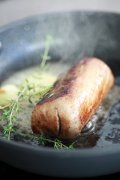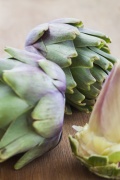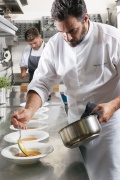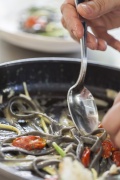 TIPS
TIPS
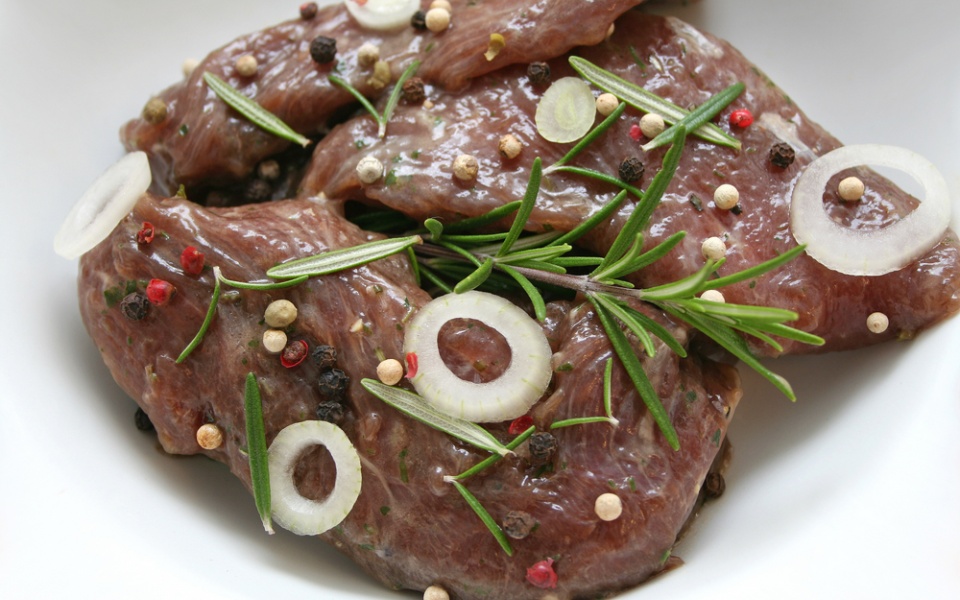
1. Simple marinades, based on ingredients such as oil, acid, herbs and spices
2. Brine or liquid salting, based on salt, water, herbs and spices
3. Dry salting, based on salt, herbs and spices
Simple marinades are the most common and are easily applied in domestic situations. Their main aim is to enhance the flavor of the end product. In these cases, food marinating is applied as a preparatory stage before cooking. The oily substance, i.e., the oil, helps transfer the other marinade ingredients (herbs, spices, etc.), to the food. The acid can have numerous roles in a marinade; the simplest is flavor enhancement; another, more complex role can be to alter the texture of the food. This alteration can be gentle, such as, for example, the relative tenderization of a piece of meat or can be more drastic, such as the ‘cooking’ of a fish fillet, as in the ceviche recipe. In these cases, food marinating is applied as a “cooking method”, since the final product will not undergo any further cooking before being consumed. In the tenderization case, things are quite complex since factors such as the time spent in a marinade and the type of food come into consideration; these make the application of specific instructions difficult for each case. I believe that the selection of the right food for the cooking method we want to use is much more important; if this is achieved there is no particular reason to try and tenderize a food (usually meat) in a marinade. In every case, the food is covered by the marinade and remains submerged for the necessary time.
Brine is an easy marinade but remains quite unusual in domestic situations. This marinade helps us achieve the correct seasoning of the food with salt as well as increased liquid retention during cooking. This results in incredibly succulent and tasty food, meat or fish. The food is immersed in a liquid (usually water) with a specific salt content, which also contains various other ingredients such as sweeteners, spices, herbs, etc., for some time. It is then cooked following the method of choice although the most appropriate are barbequing, roasting or sautéing. This method is ideal for poultry, pork and salmon.
Dry salting is the most complicated marinating category and the most difficult in domestic situations. This process is based on the dehydration caused to the food by salt. The food is covered by a mixture of salt, sugar and spices and remains covered for a long period of time. A salmon fillet, for example, requires about 3 days while a pork leg for prosciutto over 45 days. At the end of the process you will observe an immense change in the taste and texture of the food. The level of dehydration (achieved over time) is definitive for the end result.


